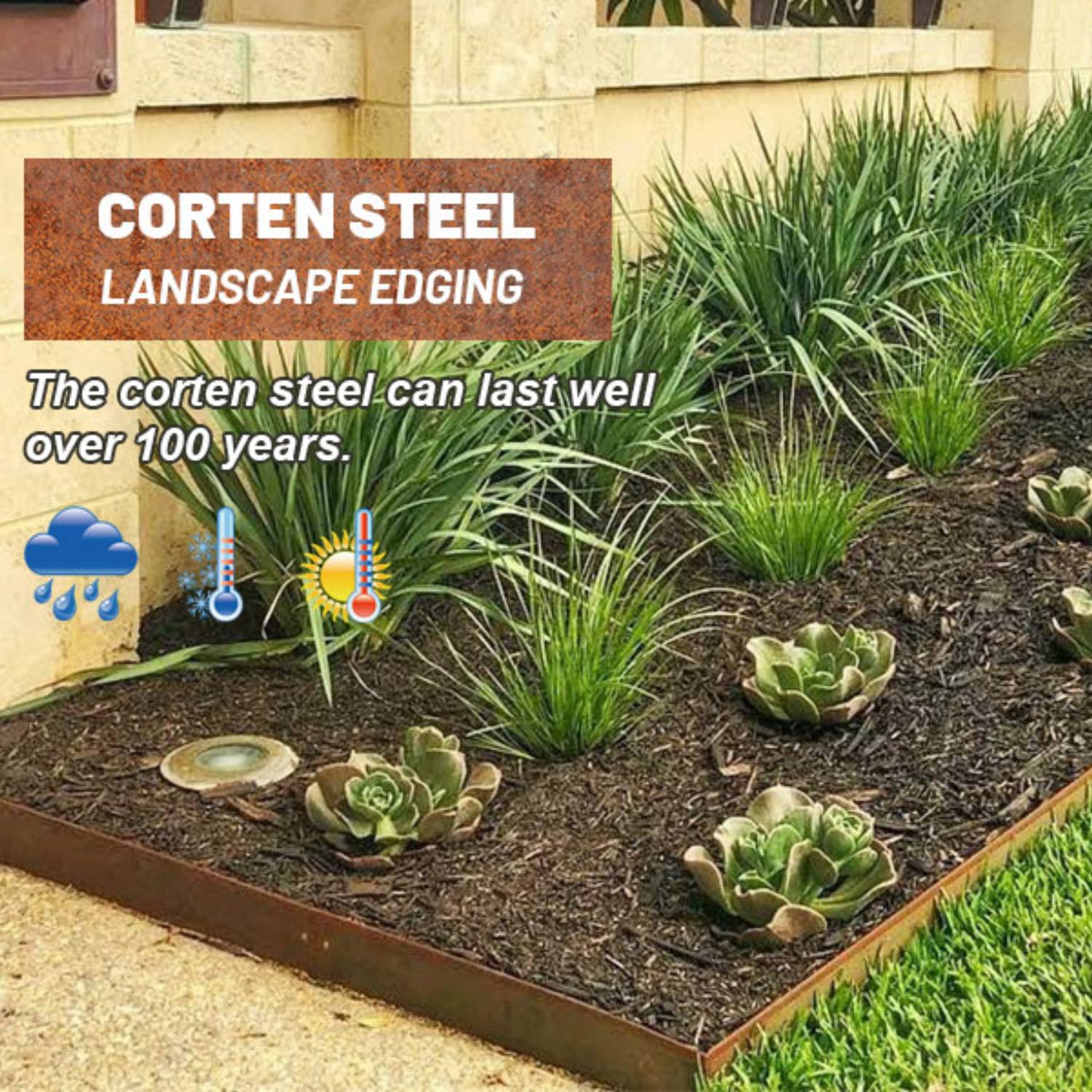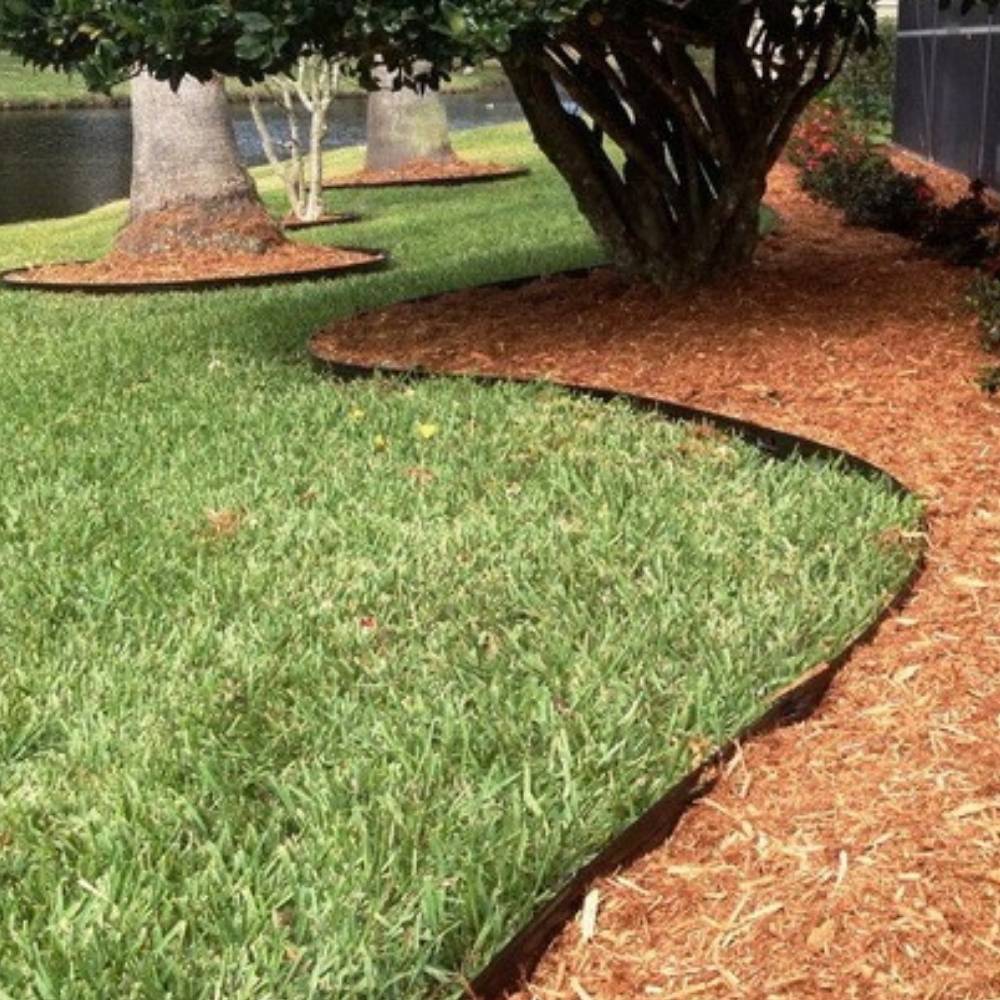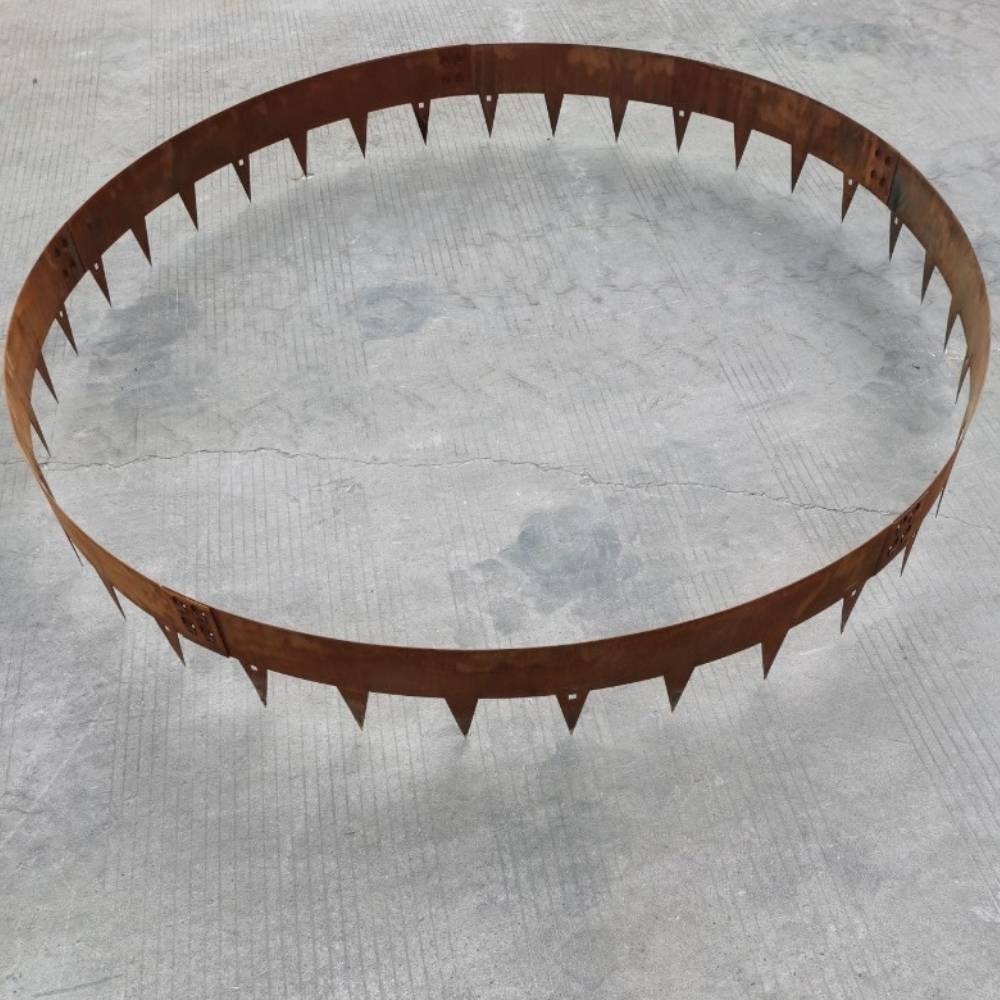Author: Site Editor Publish Time: 2023-08-18 Origin: Site












 Cor-ten steel landscape edging is an important, but often overlooked, part of landscape design that will improve any property’s curb appeal.
Cor-ten steel landscape edging is an important, but often overlooked, part of landscape design that will improve any property’s curb appeal.
While simply acting as a separator of two different areas, rusting metal garden edging is considered a design secret of professional landscapers. The corten lawn edging keeps plants and garden materials in place.
It also separates grass and pathways to give off a clean-cut and organised look that makes rusted garden edging visually appealing.

The rust finish complements any existing Cor-Ten features and brings an element of history to the garden. Very effective at controlling grass runners – when 30mm of the actual edge as well as the spikes is hammered into the ground it creates an effective barrier that will stop the runners invading paths or garden beds.
Rusted garden edging can be made of bare cold rolled steel or Corten steel. The steel used for our lawn edging is made of strong, long lasting, and durable Corten/A606-4 Steel.
Corten steel has a significantly longer lifespan than bare cold rolled steel. It will hold its shape and not bend under pressure.
The beautiful rustic finish of Corten Landscape Edging and Stakes will allow it to seamlessly blend into many different landscape styles.
Weathering steel, best-known under COR-TEN steel and sometimes written without the hyphen as “Corten steel”, is a group of steel alloys which were developed to eliminate the need for painting, and form a stable rust-like appearance if exposed to the weather for several years.
“Weathering” means that due to their chemical compositions, these steels exhibit increased resistance to atmospheric corrosion compared to other steels.
This is because the steel forms a protective layer on its surface under the influence of the weather. The corrosion-retarding effect of the protective layer is produced by the particular distribution and concentration of alloying elements in it.
The layer protecting the surface develops and regenerates continuously when subjected to the influence of the weather. In other words, the steel is allowed to rust in order to form the ‘protective’ coating.

Corten steel garden edging is a type of landscaping border made from a weather-resistant steel alloy. The steel develops a rust-like patina over time, giving it a unique, natural look that blends well with outdoor environments.
Corten steel edging is durable and long-lasting, able to withstand harsh weather conditions and resist corrosion. It also provides a distinctive, natural look that can enhance the aesthetic appeal of a garden or outdoor space.

The installation process for rusted steel garden edging will depend on the specific product and design you choose. In general, the edging is anchored into the ground using stakes or screws, and can be bent or cut to fit the desired shape and size of your garden bed or border. It is important to follow the manufacturer’s instructions carefully and wear protective gloves when handling the steel.
Yes, corten steel garden edging is designed to withstand a wide range of climates and weather conditions, including extreme heat and cold, rain, and snow. In fact, the weathering process that creates the rust-like patina on the steel is accelerated in wetter climates.
Yes, corten steel garden edging is considered to be an environmentally friendly choice for landscaping borders. The steel is 100% recyclable and does not require any toxic coatings or treatments to maintain its durability and weather resistance.
Yes, corten steel is generally more expensive than other types of steel due to its unique properties and weather-resistant characteristics. However, the cost can vary depending on the size and complexity of the project, as well as the specific grade and thickness of the steel used.

Yes, corten steel edging can be bent to create curved or angled shapes. The steel is relatively malleable and can be shaped using specialized tools or machinery. However, it is important to take precautions when bending corten steel, as the process can cause stress on the material and potentially weaken it over time. It is recommended to consult with a professional or follow manufacturer’s instructions for bending corten steel edging to ensure the best results.
Corten steel is known for its exceptional durability and resistance to corrosion, making it a popular choice for outdoor applications. With proper care and maintenance, corten steel can last for decades or even centuries. The exact lifespan of corten steel will depend on factors such as the environment it is exposed to, the thickness and quality of the steel, and the degree of maintenance it receives. However, in general, corten steel is expected to have a lifespan of at least 50 years or more. Over time, the steel will develop a natural patina that can enhance its appearance and further protect it from corrosion.
There are several types of steel that can be used for garden edging, each with its own advantages and disadvantages. However, corten steel is often considered the best option for garden edging due to its unique weather-resistant properties and natural, rustic appearance. The rust-like patina that develops on the surface of the steel over time not only adds to its aesthetic appeal but also provides an additional layer of protection against corrosion. Other types of steel that can be used for garden edging include galvanized steel, stainless steel, and powder-coated steel, but they may not offer the same level of durability or natural beauty as corten steel. Ultimately, the choice of steel for garden edging will depend on the specific needs and preferences of the individual gardener.

